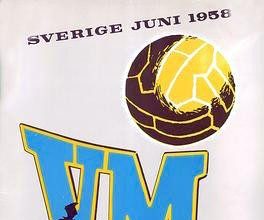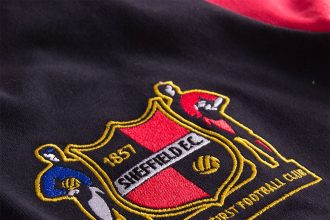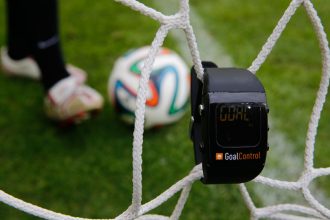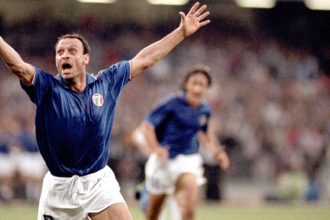The 2014 FIFA World Cup, held in Brazil, was a spectacular football extravaganza that captivated the world. With 32 teams from around the globe competing for the prestigious title, the tournament showcased exceptional football skills, intense rivalries, and moments of sheer brilliance. It left an indelible mark on the sport and etched unforgettable memories in the hearts of football enthusiasts worldwide.
Teams: Australia, Iran, Japan, South Korea, Algeria, Cameroon, Ghana, Ivory Coast, Nigeria, Costa Rica, Honduras, Mexico, United States, Argentina, Brazil (hosts), Chile, Colombia, Ecuador, Uruguay, Belgium, Bosnia and Herzegovina, Croatia, England, France, Germany, Greece, Italy, Netherlands, Portugal, Russia, Spain, Switzerland.
12 venues (seven new and five renovated) in twelve cities were selected for the tournament. The venues covered all the main regions of Brazil and created more evenly distributed hosting than the 1950 finals in Brazil. Consequently, the tournament required long-distance travel for teams. During the World Cup, Brazilian cities were also home to the participating teams at 32 separate base camps, as well as staging official fan fests where supporters could view the games.
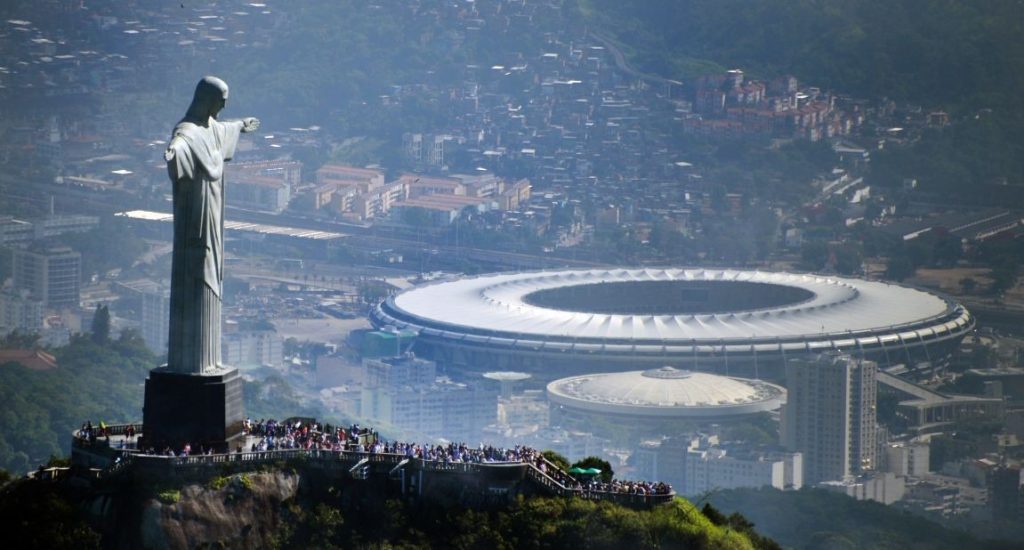
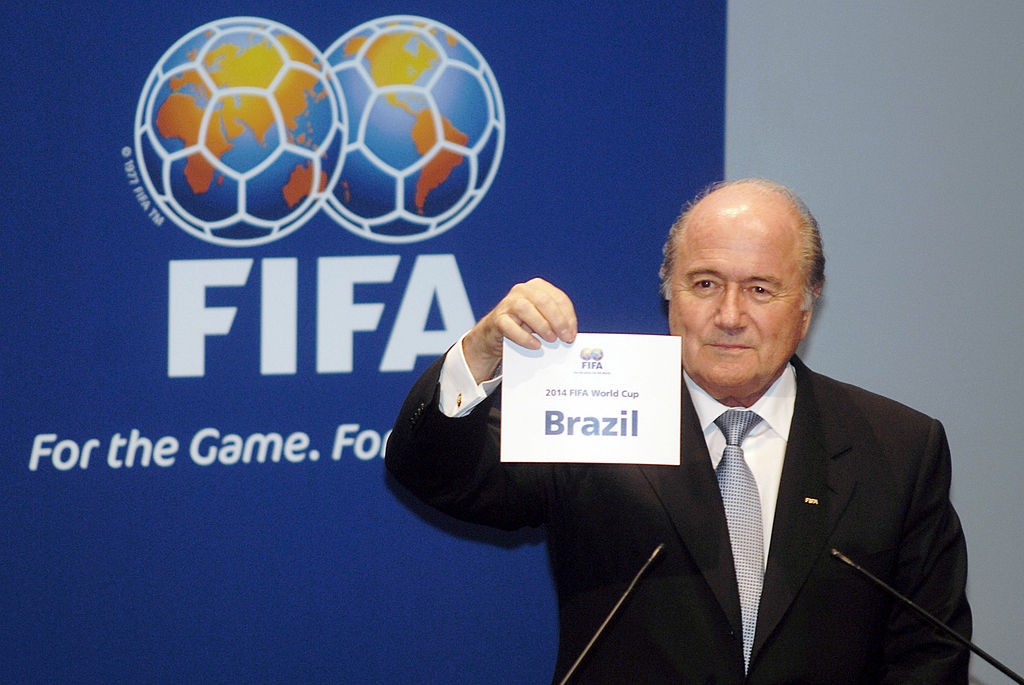
For a third consecutive World Cup tournament, FIFA staged FIFA Fan Fests in each of the 12 host cities throughout the competition. Prominent examples were the Copacabana Beach in Rio de Janeiro, which already held a Fan Fest in 2010, and São Paulo’s Vale do Anhangabaú. The first official event took place on Iracema Beach, in Fortaleza, on 8 June 2014.

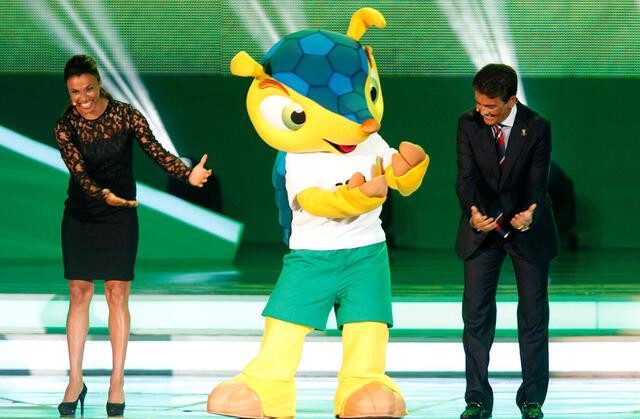
In order to avoid ghost goals, the 2014 World Cup introduced goal-line technology following successful trials at among others 2013 Confederations Cup. The chosen Goal Control system featured 14 high-speed cameras, 7 directed to each of the goals. Data were sent to the central image-processing center, where a virtual representation of the ball was output on a widescreen to confirm the goal. The referee was equipped with a watch that vibrated and displayed a signal upon a goal. France’s second goal in their group game against Honduras was the first time goal-line technology was needed to confirm that a goal should be given.
The Adidas Brazuca was the official match ball of the 2014 FIFA World Cup and was supplied by Forward Sports of Sialkot, Pakistan.
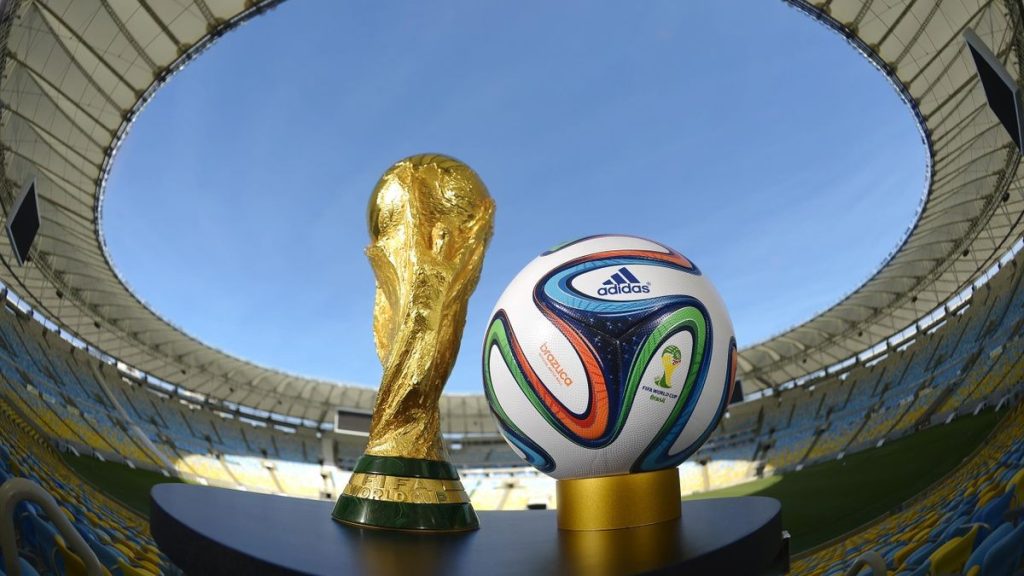
The official song of the tournament was “We Are One (Ole Ola)” with vocals from Pitbull, Jennifer Lopez, and Claudia Leitte.
The official mascot song was “Tatu Bom de Bola”.
The official anthem was “Dar um Jeito (We Will Find a Way).
The biological passport was introduced in the FIFA World Cup starting in 2014. Blood and urine samples collected from all players before the competition, and from two players per team per match, were analyzed by the Swiss Laboratory for Doping Analyses. FIFA reported that 91.5% of the players taking part in the tournament were tested before the start of the competition and none tested positive. However, FIFA was criticized for how it conducted doping tests.
On 12 June 2014, the 20th edition of the FIFA World Cup began with the opening ceremony at Arena de São Paulo, São Paulo, Brazil. The event saw 660 dancers take to the stadium and perform in a ceremony that celebrated the nature of the country and its love of football. Following the dancers native singer Claudia Leitte emerged on centre stage to perform for the crowd. She was later joined by Cuban-American rapper Pitbull, and American singer Jennifer Lopez to perform the tournament’s official song “We Are One (Ole Ola)” which had been released as an official single on 8 April 2014. Following the ceremony, the opening match was played, which saw the hosts come from behind to beat Croatia 3–1.

As with any World Cup, there were surprising upsets that left the football world stunned. The early exit of defending champions Spain and Italy raised eyebrows, while the remarkable performance of Costa Rica and their journey to the quarterfinals was nothing short of a fairy tale. The excitement of witnessing underdogs triumph over favorites added an element of unpredictability to the tournament.
Round of 16
All the group winners advanced into the quarter-finals. They included four teams from UEFA, three from CONMEBOL, and one from CONCACAF. Of the eight matches, five required extra time, and two required penalty shoot-outs; this was the first time penalty shoot-outs occurred in more than one game in a round of 16.[nb 4] The goal average per game in the round of 16 was 2.25, a drop of 0.58 goals per game from the group stage. The eight teams to win in the round of 16 included four former champions (Brazil, Germany, Argentina, and France), a three-time runner-up (Netherlands), and two first-time quarter-finalists (Colombia and Costa Rica). Belgium reached the quarter-finals for the first time since 1986.
Quarter-finals
With a 1–0 victory over France, Germany set a World Cup record with four consecutive semi-final appearances. Brazil beat Colombia 2–1, but Brazil’s Neymar was injured and missed the rest of the competition. Argentina reached the final four for the first time since 1990 after a 1–0 win over Belgium. The Netherlands reached the semi-finals for the second consecutive tournament, after overcoming Costa Rica in a penalty shoot-out following a 0–0 draw at the end of extra time, with goalkeeper Tim Krul having been substituted for the shoot-out and saving two penalties.
Semi-finals
Germany qualified for the final for the eighth time with a historic 7–1 win over Brazil – the biggest defeat in Brazilian football since 1920. Miroslav Klose’s goal in this match was his 16th throughout all World Cups, breaking the record he had previously shared with Ronaldo. Klose set another record by becoming the first player to appear in four World Cup semi-finals. Argentina reached their first final since 1990, and their fifth overall, after overcoming the Netherlands in a penalty shoot-out following a 0–0 draw at the end of extra time.
Third place play-off
The Netherlands defeated Brazil 3–0 to secure third place, the first for the Dutch team in their history. Overall, Brazil conceded 14 goals in the tournament; this was the most by a team at any single World Cup since 1986, and the most by a host nation in history, although their fourth-place finish still represented Brazil’s best result in a World Cup since their last win in 2002.
Final
The match was played at the Maracanã Stadium in Rio de Janeiro, Brazil, on 13 July 2014, and was contested by Germany and Argentina. The final featured Germany against Argentina for a record third time after 1986 and 1990. This marked the first time teams from the same continent had won three consecutive World Cups (following Italy in 2006 and Spain in 2010). It was also the first time that a European nation had won the World Cup in the Americas. On aggregate Europe then had 11 victories, to South America’s nine. Gonzalo Higuaín missed a chance to score for Argentina in the first half when he was one-on-one with Germany goalkeeper Manuel Neuer, and Benedikt Höwedes failed to give Germany the lead shortly before half-time when his shot struck the goalpost. Lionel Messi had an opportunity to score when he was one-on-one with Neuer shortly after halftime, but his low shot went wide of the goal. In 71 minutes, Thomas Müller was through on goal following a build-up involving André Schürrle and Mesut Özil, but he failed to control the ball and lost it to Argentina’s goalkeeper, Sergio Romero. With the match goalless after 90 minutes, it went to extra time, in the second period of which Germany broke the deadlock. Mario Götze, who had come on as a substitute shortly before the end of normal time, received Schürrle’s cross from the left on his chest before volleying a left-footed shot into the net to secure a 1–0 victory for Germany.
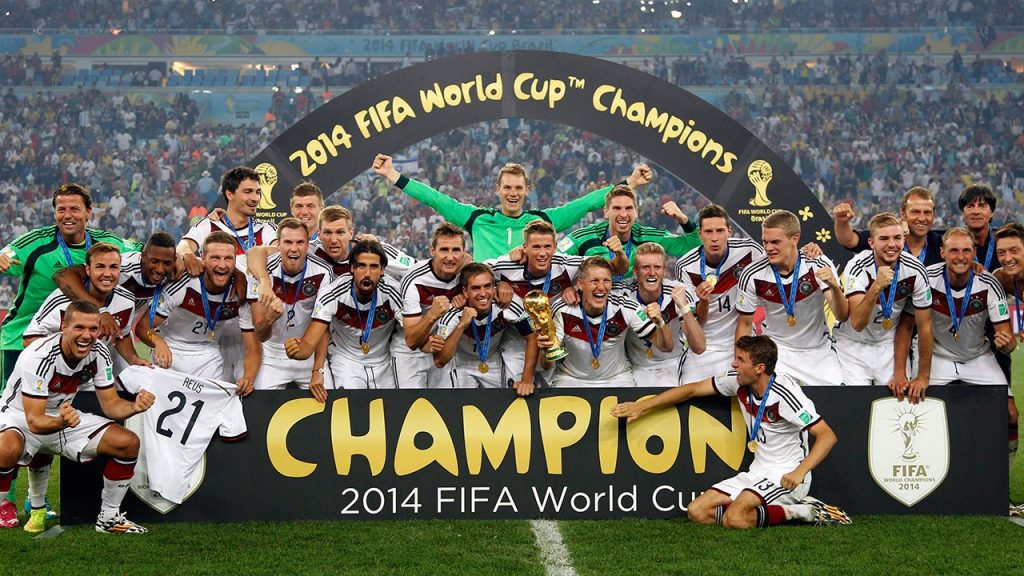
Germany’s win was their fourth World Cup title and the first since German reunification, as well as the first World Cup, win by a European team in the Americas. Götze was named the man of the match, and Messi was awarded the Golden Ball as FIFA’s outstanding player of the tournament.
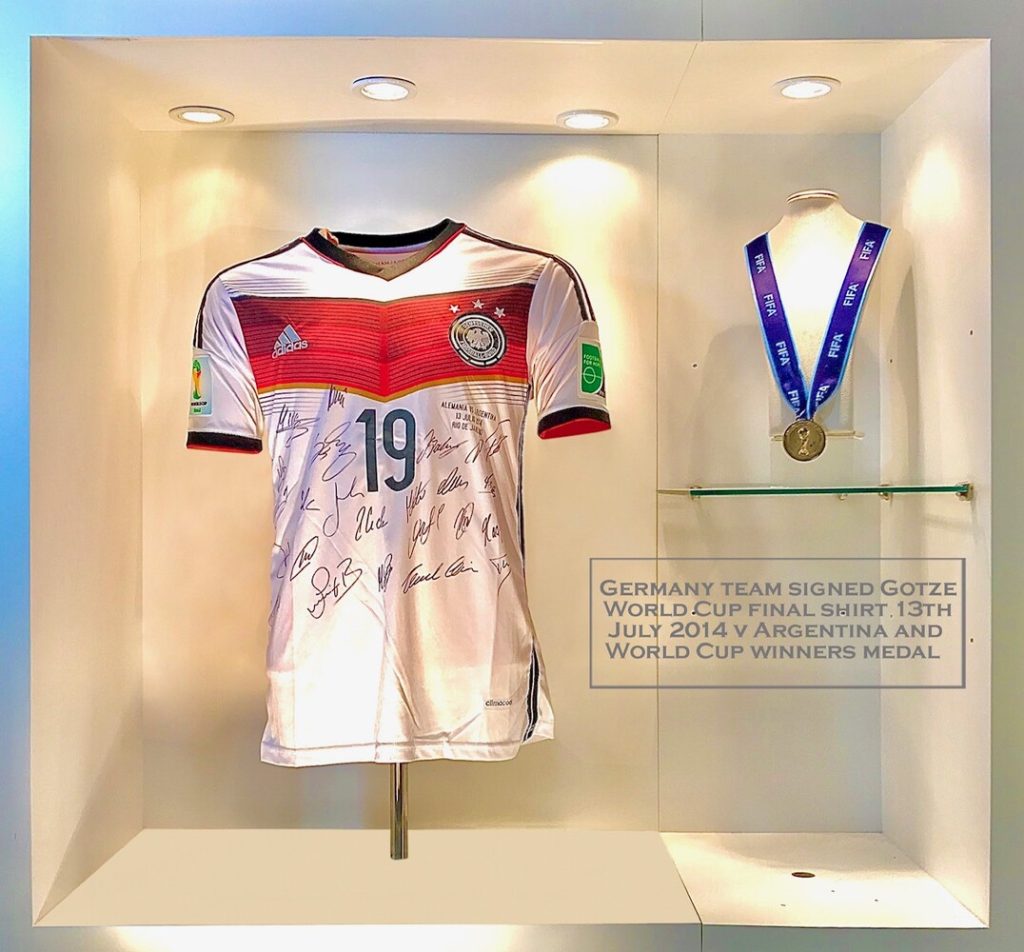
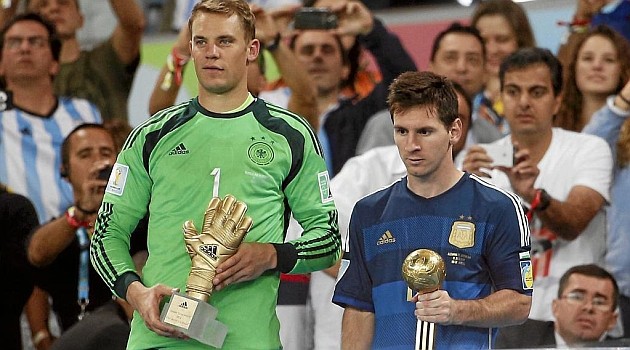
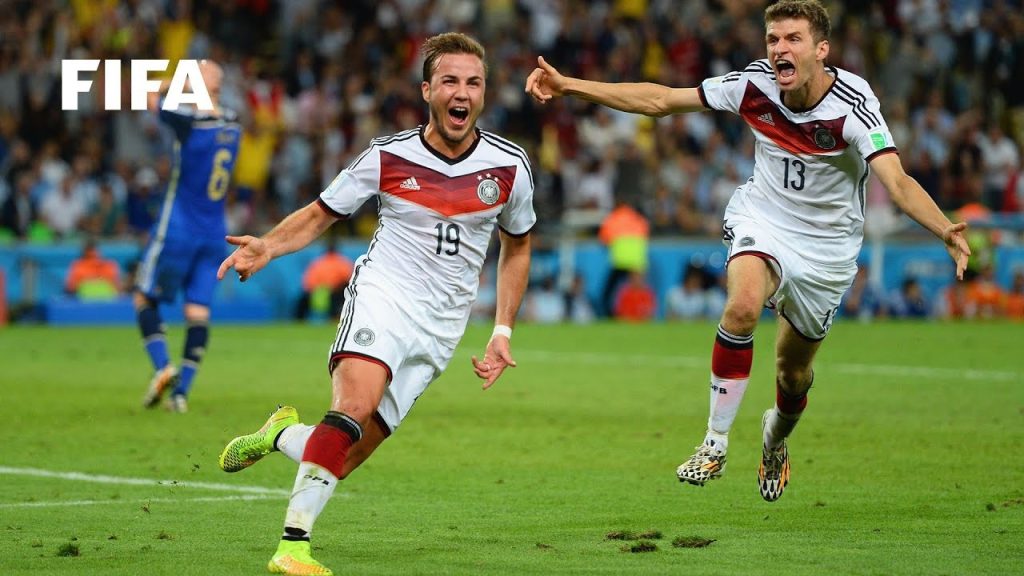
The total prize money on offer for the tournament was confirmed by FIFA as US$576 million (including payments of $70 million to domestic clubs and $100 million as player insurance), a 37 percent increase from the amount allocated in the 2010 tournament. Before the tournament, each of the 32 entrants received $1.5 million for preparation costs. At the tournament, the prize money was distributed as follows:
$8 million – To each team eliminated at the group stage (16 teams)
$9 million – To each team eliminated in the round of 16 (8 teams)
$14 million – To each team eliminated in the quarter-finals (4 teams)
$20 million – Fourth-placed team
$22 million – Third-placed team
$25 million – Runner-up
$35 million – Winner
The 2014 FIFA World Cup left a lasting legacy on the sport and the host nation. It showcased Brazil’s ability to organize a grand sporting event and left a positive impact on the country’s infrastructure and tourism. The tournament also contributed to the growth of football globally, inspiring a new generation of players and fans.
The 2014 FIFA World Cup was a spectacle of footballing excellence, bringing together nations and cultures under the banner of sport. From the stunning goals to the passionate celebrations, the tournament exemplified the spirit of the beautiful game. It will be remembered as one of the most memorable and exciting World Cups in football history.


